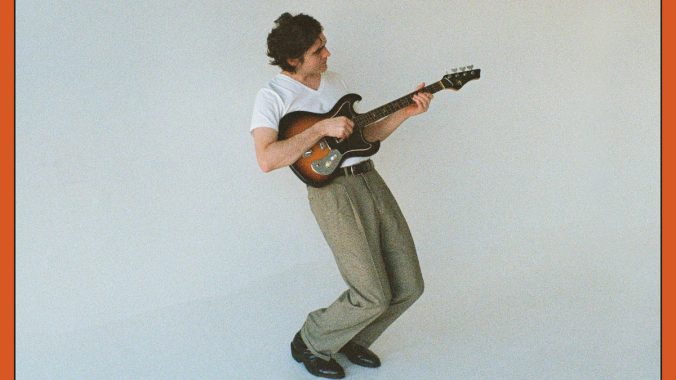Cut Worms is a Timeless Triumph
NYC singer/songwriter Max Clarke’s self-titled project tells all the right stories of an eternal, American pop identity with the ease of an old-timer and the fresh eyes of a modernist

There’s something special about Cut Worms’ self-titled LP—it sounds like something you’ve heard before. Don’t get me wrong; I don’t mean to say it’s derivative. Max Clarke’s third full-length project under his beloved moniker presents itself calmly and without too much fuss, like an album your grumpy-with-a-heart-of-gold grandfather might have played after supper on a big, clunky CD player when he babysat you as a little kid—or that you’d hear in a small-town diner with a 15-page, laminated menu. It’s front-porch firefly music, sepia-toned and even-keeled. And yet, it’s in possession of an X-factor that classic rock sycophants of today’s folk scene often miss entirely. In its expertly-orchestrated nods to the bygone genre, Cut Worms very clearly takes on an identity of its own.
Clarke’s newest album embodies traditional Americana in the purest form: It’s jangly, catchy, folksy and a little bit pissed off. Sprinkled amidst the twanging love pleas and swinging piano riffs are explorations of a real, endemic hurt which, for decades, the most talented and brave among us have disentangled from this country’s DNA and interwoven into art. Clarke does that on Cut Worms, too, just enough that where he’s coming from is familiar without arriving oversaturated. The LP presents itself sunnily, a light-drenched, head-first dive into what Clarke himself calls “pop essentialism”—but hidden beneath its shining surface is a quiet, blink-and-you’ll-miss-it urgency without which the record would lack dimension. Indeed, his sincere, timely discontent with the state of things around him saves the album from being the sort of (very, very well-executed) 21st century tribute to folk-rock that gets relegated to easy-listening radio stations and TJ Maxx store stereos.
Turn to “Take It and Smile,” a bouncy indictment against that special American hatred that seems to fill the air these days. “When it gets worse all the while, how can I just take it and smile? All the blind hatred so vile, all the pain, just take it and smile,” Clarke croons in a manner that is so upbeat that you hardly catch the gut-punch of what he’s saying. It’s a sneak-attack; a right hook to the temple on a gorgeous spring day. Similar worry is afoot on “Too Bad,” a gorgeously rich, guitar-based tapestry of discontent. Clarke sighs, “Deep inside the engine room, waves upon the frozen beach like a riptide. All control now is drifting so far out of reach.” That same upset, the anger that’s defined Clarke’s American world, slips in and out with so little fuss you hardly register its searing pathos. When you do, though, it adds a new layer to Cut Worms—one that’s tricky to pull off genuinely, and one which Clarke has become an expert at crafting.
-

-

-

-

-

-

-

-

-

-

-

-

-

-

-

-

-

-

-

-

-

-

-

-

-

-

-

-

-

-

-

-

-

-

-

-

-

-

-

-








































